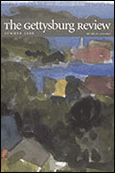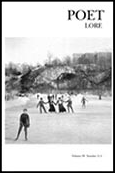Essays & Reviews
The Consequences of Silence in Julia Bouwsma’s Midden
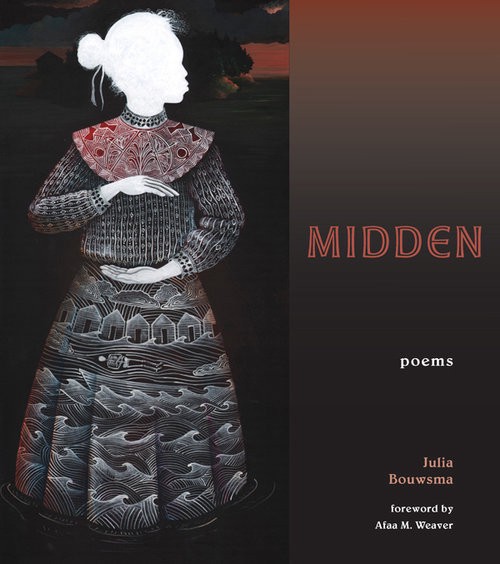 It has been said that hearing the word Malaga is like hearing the word Dachau. Research the Malaga incident, and one will find it consistently referred to as a stain on Maine’s history, an open wound for descendants of the people that settled on this 10-acre island off the coast of Phippsburg, and the reminder of a painful past for those who call Maine home. It has suffered woefully inadequate efforts at contrition, and it reeks of the rise of the eugenics movement, of which the state of Maine was a strong supporter. It is a case study in oppression, segregation, and racism, and it is this miasma into which poet Julia Bouwsma enters.
It has been said that hearing the word Malaga is like hearing the word Dachau. Research the Malaga incident, and one will find it consistently referred to as a stain on Maine’s history, an open wound for descendants of the people that settled on this 10-acre island off the coast of Phippsburg, and the reminder of a painful past for those who call Maine home. It has suffered woefully inadequate efforts at contrition, and it reeks of the rise of the eugenics movement, of which the state of Maine was a strong supporter. It is a case study in oppression, segregation, and racism, and it is this miasma into which poet Julia Bouwsma enters.
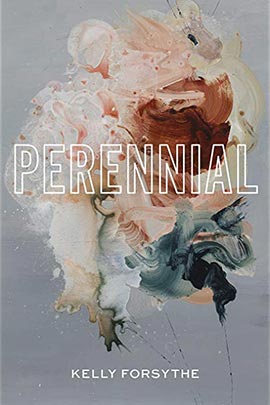 In Proximity To Violence: Kelly Forsythe’s Perennial
In Proximity To Violence: Kelly Forsythe’s Perennial
In an American high school in 1999, there was no such thing as “lock down.” There were no shooter-on-campus drills, now as common as fire drills. In the two decades that followed the Columbine High School massacre, in many ways ground zero for school shootings, 229 schools have had shooting incidences — 25 last year alone. Columbine rates not even among the ten deadliest. Let that sink in, we say. It has sunk.
Last year, the tragedy at Parkland’s Majory Stoneman Douglas High School led to students vocalizing their anguish, calling out those who support the NRA’s advocacy and agenda, and shining a light on the incompetence of officials during attacks. A new focus on mental health emerged as well, resulting in “red flag” laws that have passed in some states so signs of trouble — in the case of the Parkland shooter, an awesome list that went ignored — do not so easily slip under the radar. While the statistics surrounding school gun violence are dire, the needle of prevention has moved. More at Anomaly…
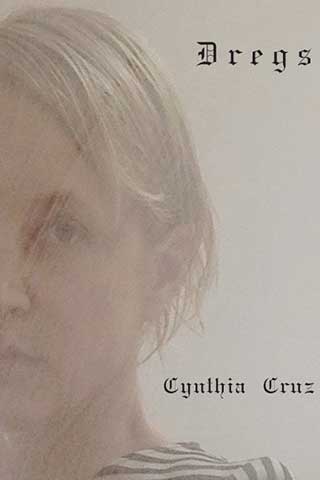 Ephemera & Trauma in Cynthia Cruz’s Dregs
Ephemera & Trauma in Cynthia Cruz’s Dregs
We spend a lot of time lately fearing collapse. When will the autocrat permanently dismantle our institutions? How will we live when circumstances carry us beyond the furthest extreme? So busy are we comparing ourselves to frogs being brought to a slow boil, it seems we may not realize when we are past the point of ruin. Would we recognize such a beyond? With Dregs (Four Way Books, 2018), Cynthia Cruz courageously throws her hat over that wall. Having done so, Cruz must find a language for the blanched, godless terrain, and readers of her work will find this an emotionally moving project. More at Anomaly…
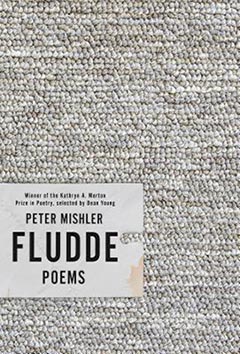 Boatsman On A Wasted Shore:
Boatsman On A Wasted Shore:
An Interview With Peter Mischler
Interviewed by Michelle Lewis
In voice, form, and content, Peter Mishler’s Fludde (Sarabande Books, $14.95) is a debut collection that feels driven into existence by the present moment. Selected by Dean Young as winner of the Kathryn A. Morton Prize in Poetry, Fludde is an empirical and moral interrogation of contemporary American culture but employs none of contemporary poetry’s familiar devices—or any device I can name. The book’s music, its vivid, outsized imagery, and its surreal associations are steeped in the Romantics, shaped by the Modernists, and communicated with a language so restrained and earnest it can stop your breath. Read more at Rain Taxi…
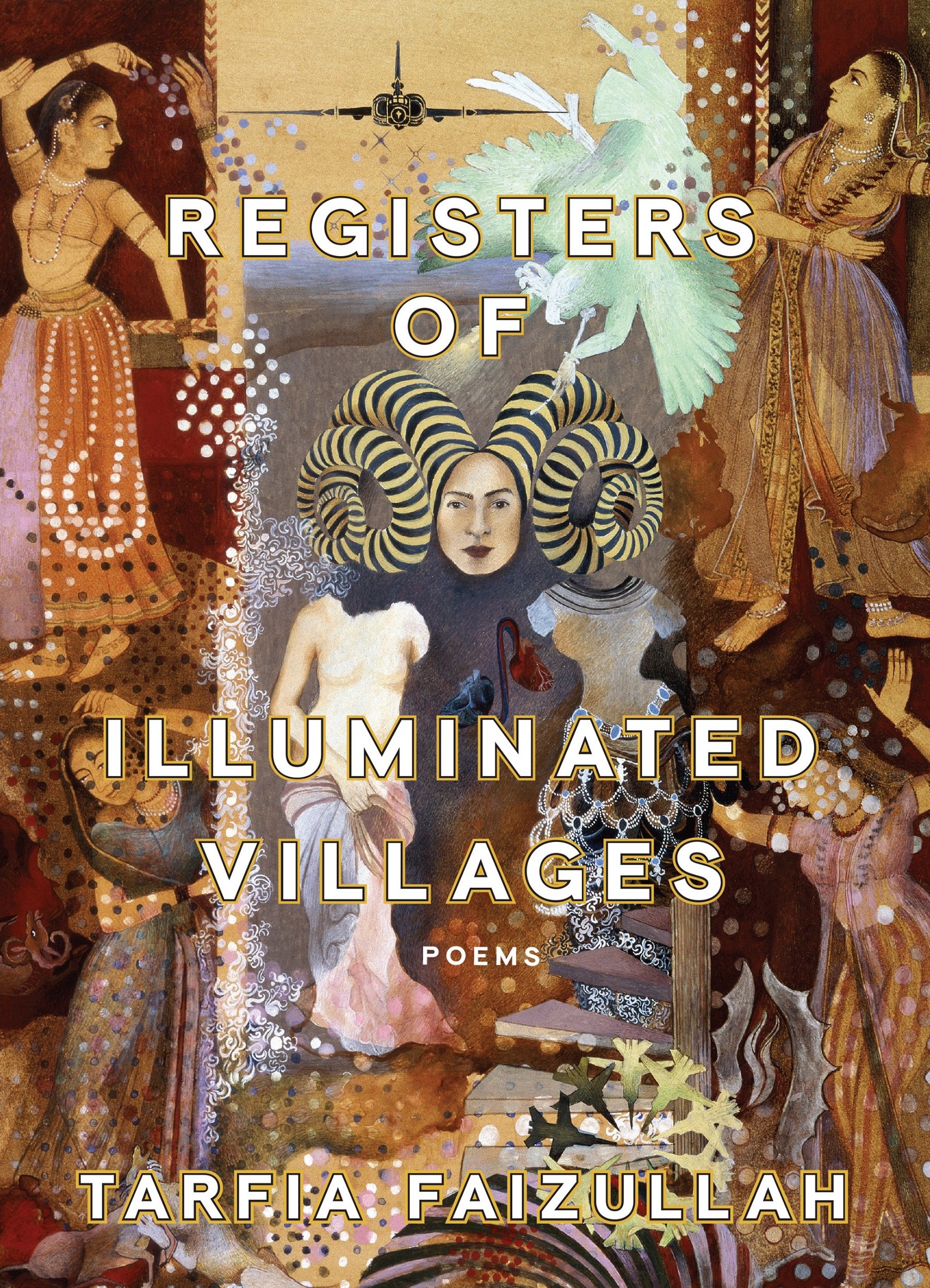 The Visceral, Empathetic Poetry of Tarfia Faizullah
The Visceral, Empathetic Poetry of Tarfia Faizullah
Who is Memory? Why does she matter / to History? the poet-child asks in “Fable of the Firstborn,” the last (or “last”) poem in Tarfia Faizullah’s Registers of Illuminated Villages (Graywolf, 2018). The book’s title refers to a news story about an actual book that contains the brutal accounting of 397 eliminated Kurdish villages in northern Iraq, a record made more terrible by the irony of its decorated cover and ornate script. Faizullah’s small linguistic sleight-of-hand has changed the modifier — illuminated rather than eliminated — and amends the Register’s name to provide the collection’s title. Why does memory matter to history? Memory does not remember, Mahmoud Darwish said, but receives the history raining down on it. This received history is the burden, the constraint, and the brilliance of Faizullah’s poetics of illumination. Read more…
 Salvaging Silences in Lauren Russell’s What’s Hanging on the Hush
Salvaging Silences in Lauren Russell’s What’s Hanging on the Hush
by Michelle Lewis
What’s Hanging on the Hush paints a pointillist picture. Lauren Russell’s debut full-length collection presents a range of lyric modes, polyphonic voices, fragmented text, and language experiments that weave together Foucault, the DSM-IV, hospital literature, newspaper articles, and a Lady Gaga HBO special. Russell uses the material to investigate identity, sexuality, loneliness, and grief, and the effect is a doubled pleasure — first, from the strange rhythms of the material itself, then from its role within a haunting chorus. Read more…
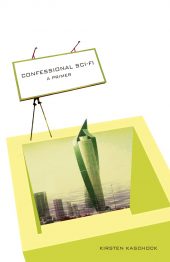
The Disturbing Comfort of Kirsten Kaschock’s Confessional Sci-Fi, A Primer
In her book 300 Arguments, Sarah Manguso asserts, “You might as well start by confessing your greatest shame. Anything else would just be exposition.” Kirsten Kaschock’s Confessional Sci-Fi, A Primer pivots on the axis of a confession. Its first section, Oh, Lorraine, is relatively brief, comprised of ten prose paragraphs, grammatically constructed in the future. It begins: “In three years, I will leave my husband, my three boys (aged 11, 8 and nearly 6) to move into the Divine Lorraine Hotel for the three months prior to its scheduled demolition.” The ramifications of this simple fact engine this book’s catastrophic anxiety. Read more…
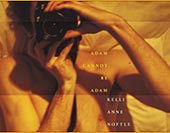 The Space Between: Inhabiting Kelli Anne Noftle’s Adam Cannot Be Adam
The Space Between: Inhabiting Kelli Anne Noftle’s Adam Cannot Be Adam
by Michelle Lewis
If you have had the occasion to contemplate the origin of the universe, you have a passing familiarity with Einstein’s theory. Einstein sets the foundation for the Big Bang, the most common explanation for this whole…thing we are living in. The theory, however, has some holes. It doesn’t quite reconcile with quantum theory, the long-held explanation for matter and energy. More at Anomaly…
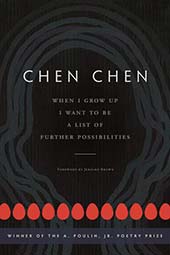 When I Grow Up I Want To Be a List of Further Possibilities
When I Grow Up I Want To Be a List of Further Possibilities
A review of Chen Chen’s debut poetry collection.
by Michelle Lewis
If your only encounter with Chen Chen is his poem, for i will do/undo what was done/undone to me from Best American Poetry 2016 (published in [PANK]), let me disabuse you of any notion that this poem represents a moment of particularly intensified emotion for the poet. More at DrunkenBoat…
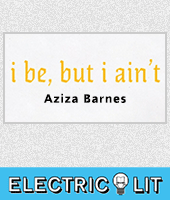 The Vernacular Music of
The Vernacular Music of
Aziza Barnes
Barnes’ collection is an innovative, hybridized work that should not be grouped into a single aesthetic.
by Michelle Lewis
On a recent episode of The Poetry Gods, a podcast Aziza Barnes hosts with Jon Sands and José Olivarez, the hosts were asked for their ideas around gatekeeping. They addressed the question in the context of white academic institutions and within more diverse art venues as well. More at Electric Lit…
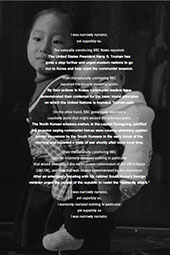 Translate Me & I’ll Kill You
Translate Me & I’ll Kill You
The Apocalyptic Message of Don Mee Choi’s Hardly War.
by Michelle Lewis
Four days after the shooting and subsequent death of Philandro wCastile in Minnesota and the attack on Dallas police officers, the New York Times ran an editorial by Michael Eric Dyson called Death in Black and White accompanied by stills from the video Castile’s girlfriend took to document his shooting. Dyson addresses white people directly. It is pointed, powerful, and difficult to read. Read More at DrunkenBoat.com
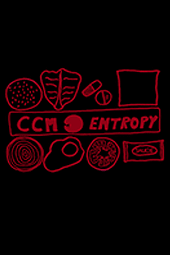 Two CCM Authors Further a Publisher’s Mission
Two CCM Authors Further a Publisher’s Mission
by Michelle Lewis
Publishing authors whose visceral emotional story-telling looks the human condition squarely in the face is bound to get a little stressful. The refrain of the Civil Coping Mechanisms (CCM) publishing house is “We’re coping,” and it’s indicative of that angsty state…. More…
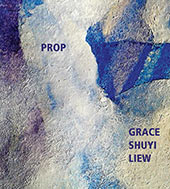 Scattered by No One
Scattered by No One
by Michelle Lewis
The Ruthless Otherworld of Grace Shuyi Liew’s Prop Readers, if you order your poetry strictly off the standard menu, Grace Shuyi Liew’s Prop (Ahsahta Press, 2016) is not for you.
More at DrunkenBoat…


